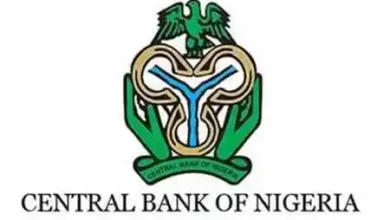
It was encomium galore for the Governor of the Central Bank of Nigeria (CBN), Mr. Godwin Emefiele as eminent personalities in Nigeria and across the globe joined him, his family and loved ones to mark his 60th birthday and extoled his role in the economic development of the country.
Emefiele, just like wine, the older, the better the experience. He has not only written his name in gold, both at home and in the international arena, but has distinguished himself from among the many brains in Nigeria who passionately fought for the economic stability of the country.
The famous Nigerian economist who has been serving as the Governor of the CBN since June 4, 2014, was born on August 4, 1961 in Lagos State, Nigeria, but hailed from Ika South, Agbor region of Delta State.
Emefiele attended primary education in Government Primary School, Victoria Island (formerly Ansar-U-Den Primary School, Igbosere), Lagos.
He completed his primary education in 1973, and thereafter proceeded to Maryland Comprehensive Secondary School, Ikeja, Lagos, graduating in June 1978 with a West African School Certificate (WASC).
Emefiele holds a B.Sc. degree in Finance (1984) and an MBA in Finance (1986), both from the University of Nigeria, Nsukka.
He is also an alumnus of Executive Education at Stanford University, Harvard University (2004) and Wharton School of Business (2005).
The Central Bank Governor, Mr Godwin Emefiele was conferred with an Honorary Doctorate Degree in Business Administration by the University of Nigeria, Nsukka (UNN).
Early in his career, Emefiele lectured finance and insurance at the University of Nigeria Nsukka, and University of Port Harcourt, respectively.
Before moving to the Central Bank, Emefiele gained over eighteen years of banking experience.
He served as chief executive officer and group managing director of Zenith Bank Plc. Emefiele served as deputy managing director of Zenith Bank Plc. from 2001.
He served as executive director in charge of corporate banking, treasury, financial control and strategic planning of Zenith Bank Plc and served on the management team from its inception.
Emefiele served as director at Zenith Bank Plc and Zenith Bank (Gambia) Limited. Emefiele serves as director of ACCION Microfinance Bank Limited.
Emefiele has been governor of the Central Bank of Nigeria since 2014. During his first term, he supervised an interventionist currency policy at the behest of the presidency, propping up the Nigerian Naira by pumping billions of dollars into the foreign exchange market.
He also introduced a multiple exchange rate regime to try to mask pressure on the Naira and avoid a series of devaluations.
In 2019, Nigeria’s Senate approved a second five-year term for Emefiele. This is the first time that anyone will serve for a second term since Nigeria’s return to democracy in 1999.
Senator Bukola Saraki read President Buhari’s letter on Thursday, May 9, 2019. He was screened on Wednesday and his confirmation came on Thursday, May 16, 2019.
Emefiele has birthed several initiatives and policies as the arrowhead of the apex bank that have revolutionized and reposition the country’s economy.
The forex restriction on the 43 items by Emefiele’s administration to drastically reduce imports and encourage local production and create jobs, remains the turning point for the country’s economy fortune.
As a fine gentleman and goal getter, Emefiele has led the Federal, States Local Governments, Banks, CBN and private sector to drive economic growth over the past 6 years targeted mostly to the agricultural, services, infrastructure, power and health care sectors of the economy.
In the Agricultural sector, for instance, the Anchor Borrowers Programme resulted in sharp decline in the nation’s major food import bill from $2.23billion in 2014 to US$0.59billion by the end of 2018.
“Rice import bill alone dropped from $1 billion to $18.5 million annually.
“This initiative supported local production of rice, maize, cotton and cassava. Government financed 2.5 million small-holder farmers cultivating about 3.2 million hectares of farmland all over the country and created 10 million direct and indirect jobs.
“Several other initiatives, namely AgriBusiness/Small and Medium Enterprise Investment Scheme, the Non-oil Export stimulation Facility, the Targeted Credit Facilities operated across the 774 Local Governments”.
In the manufacturing sector, the CBN – BOI N200 billion facility financed the establishment and operations of 60 new industrial hubs across the country, creating an estimated 890,000 direct and indirect jobs.
The CBN’s N50 billion Textile Sector intervention Facility increased capacity utilization of ginneries from 30% to nearly 90%.
The Emefiele’s CBN has contributed significantly to the development of SMEs in Nigeria. Some of the specific achievements that we have recorded in this area are highlighted below.
In terms of development finance interventions to directly support SMEs, the Bank has introduced several schemes and initiatives including the SME Credit Guarantee Scheme (SMECGS), Micro, Small and Medium Enterprises Development Fund (MSMEDF), Youth Entrepreneurship Development Programme (YEDP) and Agri-business/ Small and Medium Enterprises Investment Scheme (AGSMEIS).
Others are the Entrepreneurship Development Centres (EDCs), National Collateral Registry (NCR), Creative Industry Financing Initiative (CIFI), Targeted Credit Facility (TCF) and the Nigeria Youth Investment Fund (NYIF).
One of the most recent schemes targeted at channelling low-interest wholesale funds to the MSME segment is the Small and Medium Enterprises Development Fund (MSMEDF). This scheme, which charges 9% interest rate has recorded the disbursement of over ₦83.9billion to 216,704 beneficiaries at end of 2020.
The obligor limit ranges from ₦500,000 for micro enterprises to ₦50 billion for SMEs financed by DMBs/DFIs. Also, the initiative offers 10% of the total loans for start-up businesses, 2% to economically active persons living with disabilities (PLWD) and 60% of the Fund’s wholesale component dedicated to women entrepreneurs or women led MSMEs in order to promote financial inclusion.
Another intervention is the Agri-business/SME Investment Scheme (AGSMEIS), an initiative of the Bankers’ Committee, in collaboration with the CBN was also set up to improve access to affordable and sustainable finance by agri-businesses and MSMEs.
This will enhance the creation of productive employment opportunities and boost the managerial capacity of agri-businesses and MSMEs. So far, a total of ₦111.7 billion has been disbursed to 29,026 beneficiaries.
Furthermore, a ₦50billion Targeted Credit Facility was introduced in March 2020 as a stimulus package to cushion the effects of COVID-19 pandemic on households and MSMEs across the country. So far, under AGSMEIS and the targeted credit facility, over ₦111.7billion and ₦253.4billion have been disbursed to 29,026 and 548,345 beneficiaries, respectively.
The Central Bank also launched several youth investment-friendly programmes and interventions to empower Nigerian youths with necessary inputs to build successful SMEs and other businesses.
One of such schemes is the Youth Entrepreneurship Development Programme (YEDP) which was launched in 2016 to enhance the deployment of the ingenuity and resourcefulness of Nigerian youths to achieve maximum economic development. Under the scheme, a total of ₦173.4 million has been disbursed to over 67 beneficiaries.
The target beneficiaries are members of the National Youth Service Corps (NYSC), non-NYSC (but with not more than five years post-NYSC), holders of verifiable tertiary institution certificates, and artisans with First School Leaving Certificate or a technical certificate or accredited proficiency certificate from the National Board for Technical Education (NBTE).
Relatedly, the Federal Executive Council on the 22nd of July 2020 approved the sum of ₦75 billion for the establishment of the Nigeria Youth Investment Fund (NYIF) for the period of 2020 – 2023 to be funded by the CBN.
The objective of NYIF is to improve access to finance for youth and youth-owned enterprises for national development. Under the scheme, ₦2.04billion has been disbursed to 7,057 beneficiaries, of which 4,411 were individuals and 2,646 SMEs.
Furthermore, the Bank established the Creative Industry Financing Initiatives (CIFI) aimed at improving access to long-term, low-cost financing to entrepreneurs and investors. It covers a wide range of sub sectors in the creative industries, some of which include, movie and music production, fashion and ICT.
Among the target opportunities is the graduate software development loan. While the disbursement is in phases, in line with the agreed milestone, a sum of ₦3.1 billion has so far been disbursed to 341 beneficiaries.
Another area championed by the Bank towards SMEs development relates to entrepreneurship and youth training. The Central Bank of Nigeria (CBN) in 2006 in collaboration with Small and Medium Enterprises Agency of Nigeria (SMEDAN), National Directorate of Employment (NDE), National Poverty Eradication Programme (NAPEP) and Industrial Training Fund (ITF), began the establishment of Entrepreneurship Development Centre [EDC] across six geo-political zones of Nigeria.
The centres were mandated to develop entrepreneurship spirit amongst Nigerians and provide insight into the tools, techniques, and framework for managing all functional areas of business enterprise, including production, marketing, personnel, and finance. These initiatives have significantly helped to bridge the skilled labour gap among SMEs.
Although challenged by the current general insecurity in the country, Emefiele is not perturbed since the Federal Government is working round the clock to arrest the situation.
For industry experts, Emefiele’s contributions to the stability of the country’s economy would be judged favourably by posterity.






